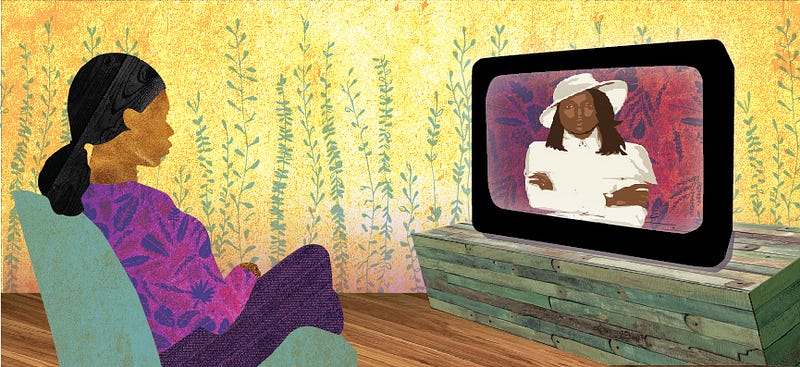Thank you, Shonda Rhimes
Discussing the importance of racial representation on major television networks, using Scandal as the lens
Story by SANYU NAMOME
High-profile political figures, twisted secrets, forbidden relationships and one powerful black woman at the center. This is essentially what Shonda Rhimes’ ABC political drama series “Scandal” is about. Rhimes is also the creator of other popular dramas such as “Grey’s Anatomy” and “How to Get Away with Murder,” in which we also see powerful black women represented as the standard to aspire to.

“Scandal” protagonist Olivia Pope, played by Kerry Washington, owns a crisis management firm in Washington D.C., where she assists elite officials with a variety of problems they encounter in order to keep them in the good graces of the American people. These include issues regarding treason, infidelity, money laundering, and terrorism. All the while, Pope herself is managing her personal life which is centered around her affair with the President of the United States, Fitzgerald Grant III.
Confession: I’m a gladiator (“Scandal” jargon meaning loyal viewer). From the day it aired in April of 2012, I knew Pope’s storyline would intrigue me. Pope represents the strong, successful black woman who makes things happen, by any means necessary. She is the leader, the go-getter, the one everyone can rely on to fix a political disaster. She is the figure who works twice as hard to receive half as much as her white male peers. From episode one, we see she is a force to be reckoned with.
On the other hand, we see Pope as vulnerable and emotionally clouded by her complicated affair with the president. Their intense love for each other coupled with her rise to power throughout the seasons take a toll on her ability to navigate certain relationships. She begins to make tougher and more sinister judgment calls, such as when she doesn’t stop her father from murdering her best friend who has the capacity to expose Pope’s own murderous history.
Pope encounters many situations where her power, vast connections and influence on the president don’t hold weight because she is still a black woman. She faces racial and gender discrimination while attempting to maneuver her way through the scandal of her complicated relationship with a married man. She gracefully handles the criticism, backlash and underlying racism that can only be caught by paying attention to the show’s subliminal messages. As a black woman herself, it’s safe to assume that Rhimes is dedicated to shining light on issues like these through the shows she creates.
Olivia Pope made me begin to fantasize about a life where all I need to do is snap my fingers to make things happen, simply because I have power, intelligence and connections. Her charm, intensity, drive and influence got her to incredible heights that I could never have predicted as the seasons progressed.
There is power in a show that allows young black women to believe the world is in their hands. Having representation of any kind is powerful on its own. Airing a show like “Scandal,” with complex political relationships, dramatic twists, high-level crime and violence, and real human beings running the country is one thing. However, having a black woman at the center of it all, pulling the most important strings in America, on a major television network like ABC, is beyond remarkable.
Fellow gladiator and Western junior Lauren Baker got hooked on “Scandal” through Pope’s captivating persona and watching the cast deal with world issues, she said.
“Olivia Pope is very strong,” Baker explained. “She knows what she wants in life, which is what I hope to be someday.”
Baker went on to discuss the impact of racial representation in television.
“[Racial representation] is most important for kids. I wish growing up that I had more African-American leads to look up to. Usually they’re the side character or supporting character,” Baker said. “Seeing a main character who looks like you in a show or movie is inspiring.”
Black women have fought for years to be painted in a light that reflects more than just struggle, anger, bitterness and the stereotypical “I don’t need anyone for anything” persona on television. “Scandal” showed me that a black woman can most definitely have power, maintain it, and have thousands of people look up to her and still be human. Olivia Pope gave me someone to aspire to be. She showed me that a black woman can wear many hats, all of them put on by her, and not by society.
